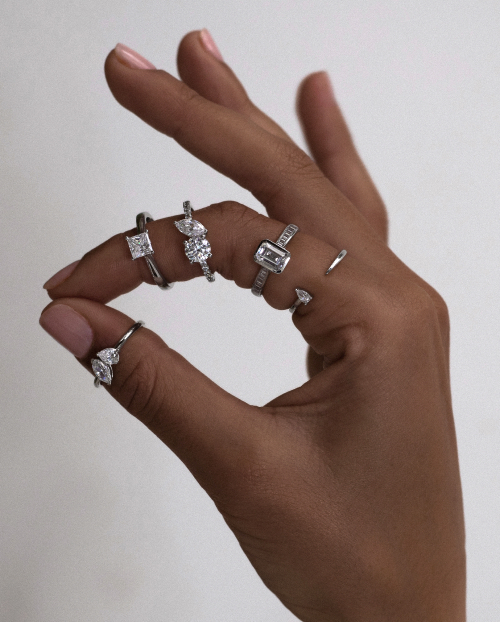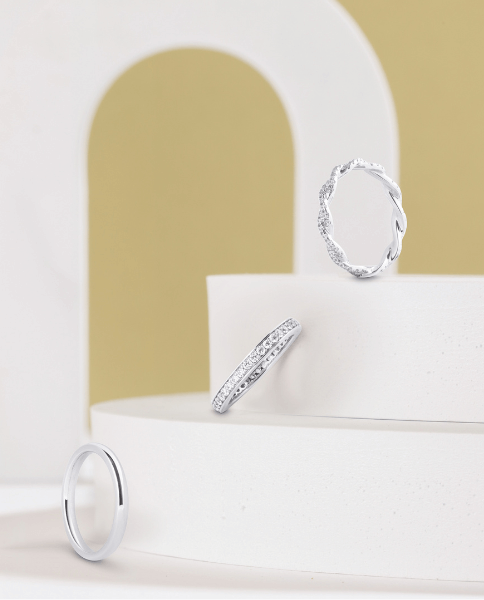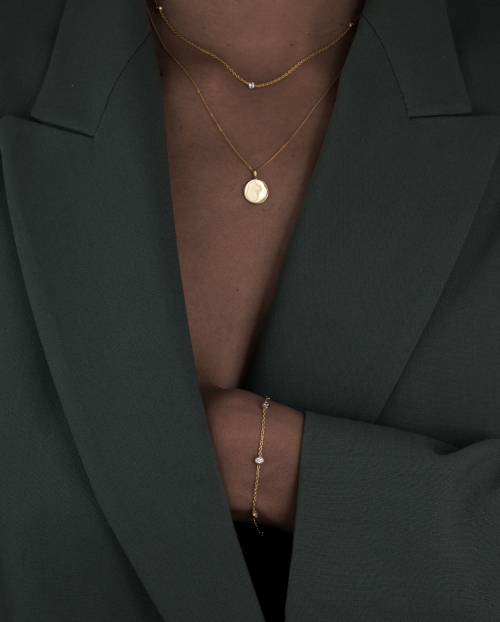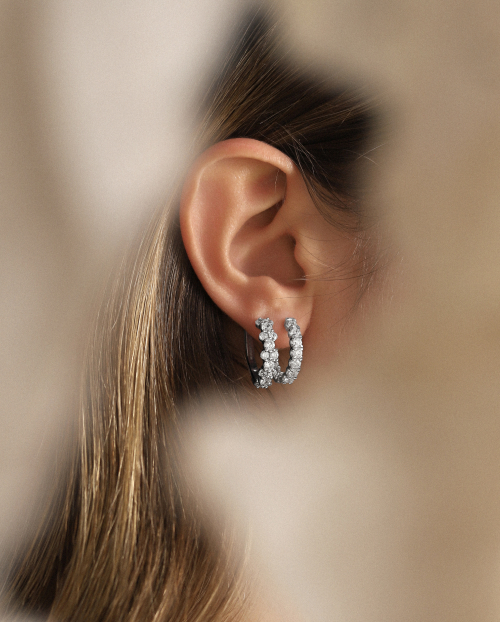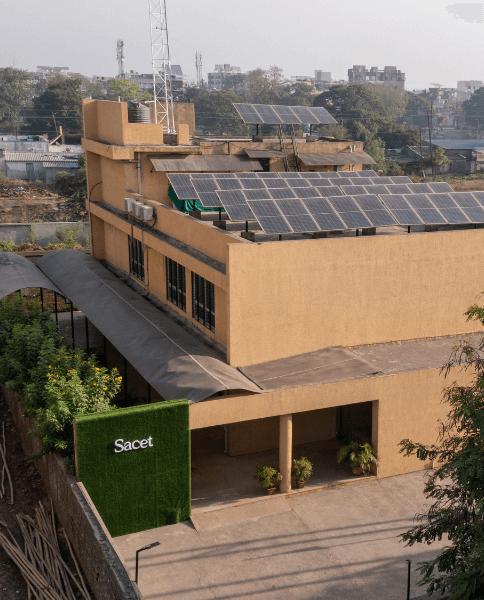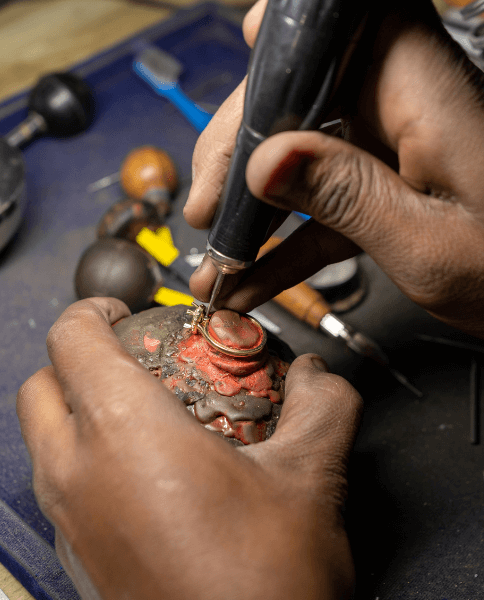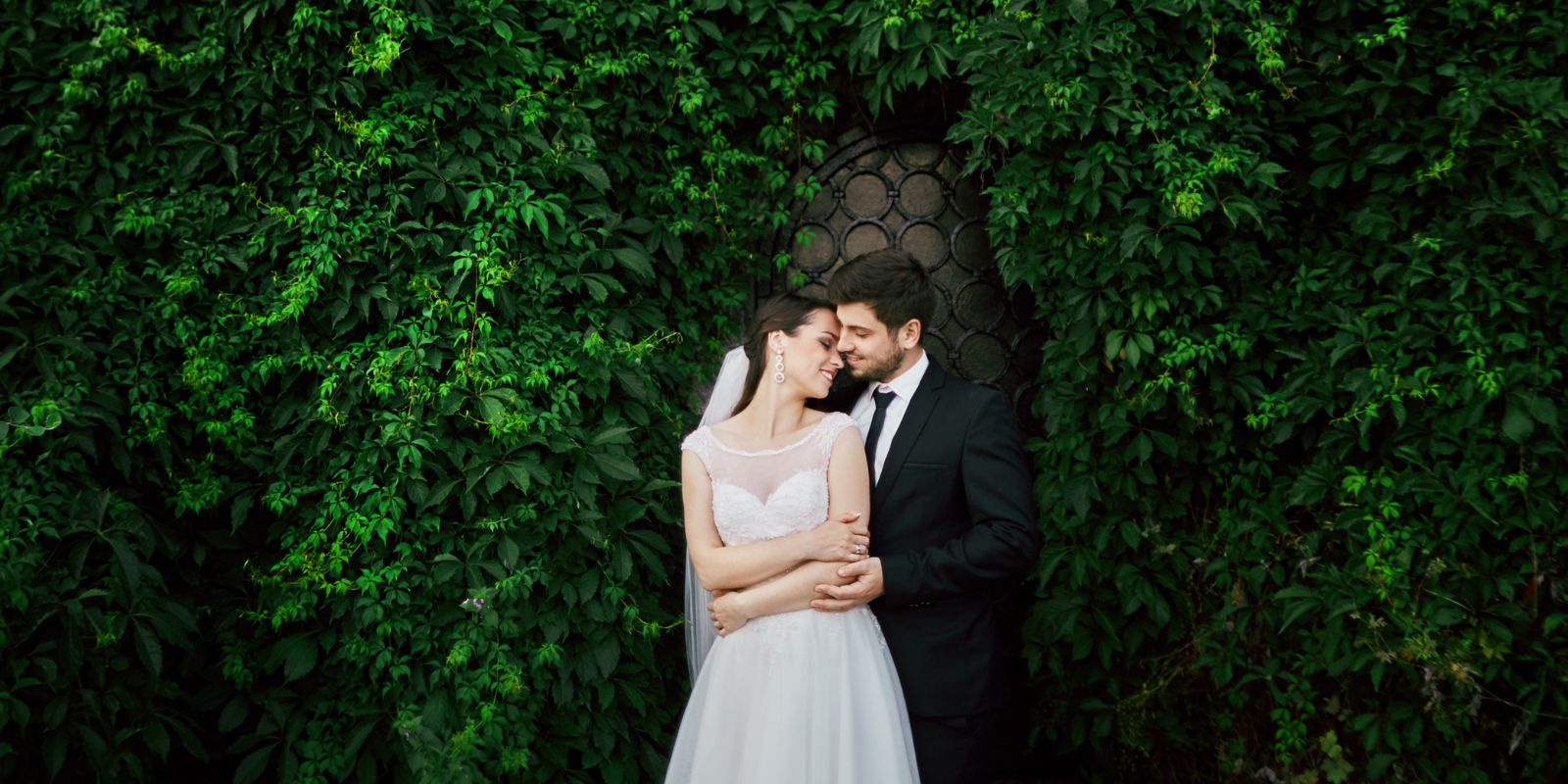19 Eco-Friendly Ways to Have a Sustainable Wedding
How to Have a Sustainable Wedding: 19 Eco-Friendly Ideas
Full of love, happiness and celebration, a wedding is, without a doubt, one of the biggest moments of a couple’s lives. We’ve all fantasised about planning our dream wedding, and the moment a couple gets engaged, it’s easy to get swept up in the excitement and extravagance. From the perfect venue and a beautiful dress to delicious food and unique entertainment, there are so many factors to consider when planning.
One factor that often gets overlooked, however, is the impact a wedding has on the environment. A surprising amount of waste and CO2 emissions are caused by weddings. And, as more and more people begin to talk about the effect, many brides and grooms-to-be are starting to plan greener weddings.
Here, we’ll be sharing tips and advice on how to have a sustainable wedding with 19 easily achievable eco-friendly ideas. We’ll also be breaking down how much waste the wedding industry produces and what the top offenders are so you’ll know what to avoid or find an alternative for.
How Much Waste Does the Wedding Industry Produce?
With over 200,000 weddings taking place in the UK every year, it should be no surprise to learn that it creates a lot of waste, with plastic being one of the largest contributors. According to Do the Green Thing, a British wedding will last approximately 9-10 hours and have around 100 guests, which will cost, on average, £27,000.
At the end of the day, when the vows have been said, and the people have partied, just 1 wedding will have produced ⅓ of a metric tonne of solid waste, with 20kg of single-use plastic being wasted, and 14.5 tonnes of carbon dioxide. Considering the annual carbon emission per capita in the UK is just 9.1 tonnes, that is a startling figure for 1 wedding. When multiplied by roughly 250,000 weddings, it results in 3,625,000 tonnes of gas being emitted every year from weddings alone.
Of course, it’s not just the single-use plastics creating the problem. A shocking amount of food is wasted at weddings too. Grazia revealed that, on average, £488 of food is wasted every wedding. They also discovered that, typically, £3,245 is spent on wedding food, £717 on the cake, £365 on edible favours, which 37% of guests don’t eat, and £558 on drinks.
To put that figure into perspective, an average family home will throw away around £700 of food per
year. This means that a single wedding accounts for 65% of a home’s food wastage across the year.
What are the Most Wasteful Wedding Items?
There are some wedding items and features that cause more harm than others and are best to avoid, or find an alternative if possible if you want to have a greener wedding. The biggest, most common wasteful wedding items include:
Confetti
Originally, throwing rice at a newly married couple was custom as it symbolised rain, which is said to be a sign of prosperity, fertility and good fortune. However, when it was rumoured that rice could be fatal to the birds that swoop down and eat once people have left, it was swapped out for confetti instead. Unfortunately, confetti is not great for the environment either, as the material won’t degrade naturally. The best option now is to throw biodegradable dried flower petals, which look pretty and won’t harm the planet.
Balloons
Balloons are made of a material that doesn’t break down and is a big contributor to landfill sites. Not only are they harmful to the environment, but if left on the ground somewhere after they’ve been released, they also pose a threat for wildlife who risk choking on them. Currently, there are no eco-friendly alternatives to balloons, so it’s best to leave them out of your wedding.
Fireworks
Fireworks, while they can add a beautiful, celebratory element to your wedding, are extremely damaging to the planet for many reasons. Firstly, the production of fireworks can be dangerous and cause long-term health problems for the workers. They also exude sulfurs and nitrous oxide into the atmosphere, plus there's a high risk of fire or guests being hurt due to a malfunctioning display. Lastly, as most pet owners know, animals are terrified of the sound and sometimes even the smell of fireworks, which can cause panic attacks, anxiety and even death in extreme cases.
Exotic Flowers
The wedding bouquet is often a very important and memorable part of the day, which is featured in photos, videos, decorations and, some brides have their bouquet preserved afterwards as a keepsake. When creating a bouquet, choosing exotic flowers that need to be transported if they aren’t seasonal, results in a higher level of CO2 emissions.
Below, we’ve provided ideas and inspiration on how to throw a sustainable wedding without needing to miss out on some of the most vital components including wedding attire, jewellery, the cake and even the honeymoon.
1. Choose an Eco-Friendly Wedding Venue
Where you choose to host the big day can have an impact on the environment. Luckily, there are plenty of sustainable wedding venue options to choose from. We’d recommend keeping it local rather than a destination wedding, which will require a lot of air travel for you and your guests. But, if you have your heart set on a destination wedding, find locations that take fewer and shorter plane and car journeys.
An outdoor wedding will have the most minimal impact as you’ll be able to make the most of the natural daylight and cut back on decorations too. From botanical gardens and rustic barns to sandy beaches and country farms for animal lovers, there is a huge range of fun, unique and romantic outdoor wedding venues.
Some venues are much greener than others and have plenty of eco-friendly practices in place, such as recycling policies, biodegradable products, energy-efficient appliances and more. Make sure to ask all the important green questions when it comes to viewing your venue before you decide.
For both the wedding ceremony and the wedding party, we’d also suggest holding both events in the same place to minimise any travel. Plus, you may find it’ll help with budgeting too.
2. Use Conflict Free Rings and Jewellery
Consider the ethics of your wedding rings, and any other jewellery, you may wear on the day. We are all aware of the damaging impact diamond mining has on the environment, the people and its communities. So, choosing conflict-free, lab grown diamonds and recycled metals is the way forward.
At Sacet, all of our products, including wedding rings, are created using 100% recycled metals and ethically lab grown diamonds. And we don’t just stop there. Our packaging is made with eco-friendly materials, and every product is hand-finished and custom made in our artisan workshop.
More than 1.3 billion people in the world still live in extreme poverty. This is why we built a conscious workshop, where 100% of the manufacturing company profits will be used to provide our craftspeople and others with skills development, healthcare and children’s education to help them live an enriched life.
3. Hire a Green Wedding Planner
While hiring a wedding planner is not a necessity, it can take bundles of stress away from the couple, allowing them to enjoy the process more. Wedding planners help to organise and support your wedding, while keeping within, and sometimes even under, the budget. Planners who specialise in green weddings, will not only be able to curate your perfect day but offer a zero-waste, eco-friendly event.
Highly experienced green wedding planners will know all the best ethical event suppliers, can advise on where to get sustainable decor, or how to upcycle, suggest seasonal flowers and organic catering options and much more. They’ll listen and take everything you want into account to make the entire wedding planning process as smooth and hassle-free as possible.
4. Have a Smaller Guest List
It’s no secret that putting together the guest list is one of, if not the most, stressful parts of planning the wedding. With friends, co-workers, extended family members and even some acquaintances all expecting an invite to the big day. A big wedding party filled with everyone you know may seem desirable to some, but, ultimately, sharing the day with your nearest and dearest will be much more meaningful.
Cutting down a guest list is a tough task. But, being more selective will have many benefits. For one, it’ll be a lot more budget-friendly as you won’t need to pay for meals or a venue that can hold a bigger capacity. And, it’ll have a direct impact on your carbon footprint too. With fewer people travelling to the wedding, the amount of CO2 emitted is also reduced.
If you’re struggling to have the conversation about who is invited and who isn’t, remember that if your friends, co-workers and extended family care for and are as concerned about the planet as you, then they’ll no doubt understand and accept your reasoning for wanting a smaller wedding.
5. Find Sustainable and Organic Catering Options
While it’s usually an important requirement to consider everyone’s dietary needs, whether they’re vegetarian, gluten-free or allergic to something, where and how the food has actually been sourced is often forgotten. Finding a catering company that can provide local, Fairtrade, and ethically produced ingredients will be a big step toward a sustainable wedding. If you can create an entirely vegan or vegetarian menu too, this will also reduce the environmental impact. However, if this is too difficult, even a 50% vegetarian menu will be beneficial.
You may also want to look into sourcing your alcohol, if you’ll be having any, from local wineries, distilleries and breweries. Sourcing local food and drink will not only help to reduce your carbon footprint as there won’t be as much milage, but it’ll also help smaller farms to thrive. If your catering company plan on providing the cutlery too, make sure their products are reusable, recyclable and biodegradable.
As mentioned earlier, since around £488 of food is wasted every wedding, ask your caterers what their policy is regarding food wastage. Most sustainable companies should be able to donate food that hasn’t been cooked and won’t perish to a food bank. Or, food that had been cooked but wasn’t consumed can be turned into compost rather than be thrown away.
6. Organise Group Transport
It should go without saying that the fewer cars are on the road, then the lower level of emissions there will be. So, if a lot of your guests live nearby each other, organising group transport, such as a coach or large taxi, will be one of the most eco-friendly ways to get everyone to the wedding. If the wedding venue is in the city, then guests may also be able to get the train or even walk to the event too.
Organising group transport is also beneficial for any elderly relatives who no longer have the confidence or ability to drive themselves and people who may not be as familiar with the area as others. It can take a lot of pressure off both guests and yourself when you know that everyone will be able to get to the wedding. Plus, it also means that those who are drinking won’t need to worry about transport back to their homes or hotels or where to leave their car overnight.
7. Use Recycled or Electronic Stationery
When it comes to your stationery, it may surprise you to learn how much you actually need. From invites and signs to table plans, place cards and thank-you notes, the use of so much paper and card can feel disappointing when you’re trying to be as sustainable as possible. This is why so many brides are turning to e-vites. Digital invitations are more affordable, easy to customise and perfect for a modern wedding. They’re also easier to follow up if a guest hasn’t RSVPd.
For guests who may not be computer savvy, you reach out to them over the phone or see them in person to give them all the details, which may be seen as a more personal touch. With items such as table plans and place cards or any other form of paper signage, you can use recyclable options or bamboo paper, which is highly renewable.
8. Buy Low-Impact Flowers
Although technically, flowers are organic since they are grown and can always continue to grow, there are still more sustainable options you can choose for your wedding bouquet and any other floral arrangements for bridesmaids, groomsmen and decorations.
We’d always recommend buying flowers locally, otherwise, they’ll likely be transported from across the world, which will increase your carbon footprint. As most flowers used in Western Europe are grown in Kenya, Ecuador, Vietnam, and Colombia, when you buy from places that source flowers aboard, you also run the risk of supporting unethical practices and exploitation in the supply chain.
If you’re a keen gardener, you could also try growing your own flowers for the wedding. This will certainly make all the bouquets and floral decorations feel more meaningful and, while they may not be as polished as the professional bouquets, they’ll definitely inject personality into your wedding.
When looking for a sustainable florist, make sure to look out for those who don’t use floral foam or plastic in any of their work, source local flowers and are transparent about how they work and where exactly their flowers come from. All florists who claim their products are sustainable should have the stamp of approval from organisations such as LEAF, Soil Association and the Rainforest Alliance.
9. Keep Entertainment as Eco-Friendly as Possible
A big part of the wedding party is the entertainment. When the vows have been said, the meal has been eaten, and the guests have mingled, you’ll no doubt want to celebrate and dance late into the night. DJs and bands typically take up a lot of power with loud music, lighting effects and stacks of speakers, all using an enormous about of electricity. Luckily, there are plenty of other entertainment options that are more sustainable and unique.
Firstly, consider a local roaming band. This type of band offers an all-acoustic performance, so you don’t have to worry about amps, microphones or an overwhelming about of cables. Roaming bands are a lot of fun as they can wander around the venue playing music for guests at their tables during the meal and encourage people to get up and dance.
If you’re having an outdoor wedding, get your hands on some giant lawn games such as Jenga, chess, ring toss, skittles or even croquet and let your guests unleash their inner child as they spend an afternoon playing.
Although they are quite difficult to come by, it is possible to have an environmentally-friendly DJ if a disco is an absolute must-have at your wedding. To do this, you'll need to try and find a DJ who only uses power generated by biodiesel, which is a type of fuel made from vegetable oil and other sustainable products.
10. Include Natural Materials in Your Decor
Going green doesn’t mean you have to compromise on the decor or the overall aesthetic of your wedding. There are many alternatives and clever techniques you can utilise to remain as sustainable as possible without forgoing the decor. Although, balloons and sky lanterns, which are harmful to the environment and the local wildlife, are best left out completely. Instead, focus on recyclable or reusable items such as glassware, bunting, ribbons, books and vintage decor. Since it's possible to hire most of your decor, you can be confident knowing that the items you choose will be reused over and over.
For tableware, we’d suggest using natural materials where possible. For example, tablecloths and napkins can be made from hessian, hemp or pure linen for a natural and eco look. Also, consider using natural wood that’s been sourced from sustainable forests for your cutlery, plates, bowls and even the tables themselves. With just a few small changes, you can easily create a decor scheme that's not only beautiful and will wow guests but sustainable too.
11. Enjoy a Sustainable Wedding Cake
The cake is a big part of the wedding day, and over the years, people have been getting more and more creative with them. From supermarket cakes and individual mini cakes to cakes made purely from cheese and modern art cakes, the realms of possibility when it comes to your wedding cake are endless. So, talking to your baker to arrange a sustainable wedding cake should be one of the easiest jobs on the list!
Firstly, ask your cake maker to only use organic, local and fair-trade ingredients. If you’re wanting to use fruit, only include fruit that is currently in season, and won’t need transporting overseas. A vegan cake option will also have less of an environmental impact, and most people won’t even be able to tell the difference. If you’re decorating the cake, try to use edible cake toppers and reusable decors such as ribbons and log plinths.
12. Choose Local Suppliers
Finding the perfect suppliers to help make the day as special as you’ve always imagined can be a daunting task. From wedding planners, photographers and videographers to a band or DJ, florists, caterers, bakers and furnishers, make sure all of your suppliers share your eco-friendly vision and are local.
Rather than finding a supplier that lives on the opposite end of the country and will need to travel miles, which will greatly impact the wedding’s overall carbon footprint, local suppliers are much more eco-friendly. Plus, they will have likely already supplied for a wedding at your local venue and will know the layout, the best spots for pictures and the staff, so everything will work in total harmony.
To find suppliers who have the same views on sustainability as you, here are some questions you can ask during the first meeting:
● What sustainably standards and certificates do you hold?
● Where do you source your products from?
● Do you have a recycling policy in place?
● What happens to the leftover food or stock that isn’t used?
● Do you have a solid environmental management system in place for your processes and employees?
13. Make the Most of Daylight
As gorgeous and cosy autumn and winter weddings are, unless you have a particular affinity for the season or want to hold your wedding on a meaningful date during the colder months, we’d recommend choosing a date in the summer to make the most of the natural daylight. Securing a summer date may be more difficult to find, as most people want a warm wedding on a sunny day, but for the eco-conscious, the hassle will be worth it.
A wedding in the hotter months will mean costuming less energy as the natural heat will keep both you and your guests warm. You also can’t beat the natural lighting in photos. As the days will be longer during the summer, you’ll be able to enjoy the sun long into the night and not need any kind of artificial lighting, which will also save you even more energy.
14. Use LED Lights or Natural Candlelight
However, if you are getting married during the autumn or winter months, then you have several options for more eco-friendly lighting. First of all, LEDs use a lot less energy than regular light bulbs - they’re often a lot brighter too, which means you won't need to use as many. So, if possible, think about replacing them wherever you can.
For a more romantic vibe, opt for a candlelit ceremony and reception using beeswax candles, which are much more sustainable than soy or palm wax candles, as nature itself takes care of the production process, and they are non-toxic too. You can hang candles from the ceiling, place them in corners, on ledges, staircases and tables (if it's safe to do so) to provide a form of natural lighting. If you’re planning on using candles, we’d recommend letting your photographer know so they can make arrangements and bring the right equipment to handle candlelight.
15. Use Biodegradable Confetti
Throwing confetti at a wedding is a lot of fun. Traditionally, confetti is thrown by family and friends after the ceremony, as a way to say ‘congratulations’ and wish a lifetime of luck and happiness to the married couple. As we mentioned earlier, throwing rice was the custom until it was discovered to be bad for birds and other wildlife. So, people decided to throw confetti instead. Sadly, this wasn’t great either, as the material used in confetti doesn't naturally degrade.
If you still want to follow the confetti throwing tradition though, there are plenty of other options available that won’t harm the planet. The most popular choice is to throw dried flower petals - most people choose red rose petals as roses symbolise romance, love, beauty, and courage. Not only does this look pretty, but it will naturally degrade too and won’t hurt any animals.
There are more biodegradable confetti options too, which mainly consist of cornstarch, mica or herbs, which are all non-toxic and will break down quickly when exposed to moisture. Thankfully, with so many eco-friendly confetti alternatives, no one needs to miss out on this beloved wedding tradition.
16. Choose Ethical Wedding Attire
Everyone wants to look their best on their wedding day, but that doesn’t mean you have to throw your sustainability efforts out the window. There are several ways to wear exactly what you’d envisioned while still looking your most beautiful self. Choosing a wedding dress or suit which uses sustainable materials is the first step in ensuring your outfit is as ethical as possible. Luckily, common wedding attire materials include satin, hemp-based silk, organic cotton, knitted lace and other fair-trade products, so this shouldn’t be too difficult to find.
Rent
If you aren’t the sentimental type, you can always rent your suit or your dress for the day. Not only will this save you a significant amount of money, but with so many designers available, you’ll easily be able to find your dream dress or suit. Plus, you won’t be directly responsible for the manufacturing and creation of the dress or suit and can rest assured that it’ll be reused over and over.
Wear a vintage dress
If you’re not having a traditional wedding, change up the attire and dress in something which you know is eco-friendly. You could also encourage all of your guests to do the same if you really want to emphasise the sustainable theme. A vintage dress and jewellery, perhaps worn by your grandmother or someone in the family will have an extra special and thoughtful meaning behind it. You can also buy a dress or a suit second-hand or from a charity shop to help prolong the lifespan of the outfit and prevent it from ending up in a landfill.
17. Create a Sustainable Wedding Gift List
Creating a wedding gift list is an exciting time in the planning process…who doesn’t love presents? And it’s a great chance to explore and receive some ethical and sustainable items to use for the rest of your life. Products such as solar panel chargers, compost bins, and bamboo toothbrushes, for example, are all items that are guaranteed to be used and help the planet.
Fairtrade rugs, cutlery, tables and more are also items that you know will make a positive differencein someone’s life and are essential items that will make your home more sustainable overall. Or, you could choose products from small businesses that were created locally to reduce your carbon footprint and support the community.
Alternatively, rather than receiving gifts that you don’t need or already have, you can also ask guests for money, which you can then use to either save up to buy a house together or toward a honeymoon. If you don’t feel right asking people for money, instead, ask them to donate any money they were thinking of spending on you to a charity of their choice.
18. Have a Post-Wedding Recycling Plan in Place
With the shocking amount of wastage often generated by a wedding, it’s important to ensure you have a post-wedding recycling plan in place to help reduce this. Speak to your venue to arrange areas where guests can recycle during the event. And, remember to ask your catering company what their food waste policy is and whether uncooked and imperishable food can be donated to food banks.
You may also want to think about having a detailed plan for what you’re going to do with anything leftover at the end of the day. Most venues will pack up your decor items ready for you to collect the next morning. So, when buying your decor, flowers and table items, choose things that can either be recyclable or, if you want to keep them, make a plan on how to reuse or repurpose. For example, flowers can often be dried and preserved, so you can easily make them part of your home decor and be reminded of the amazing wedding day you had whenever you look at them.
19. Plan a Responsible Honeymoon
A honeymoon is a once in a lifetime adventure, and a chance to relax with your new spouse after months of planning the perfect wedding day. While you can choose to do a staycation if you wish and experience all the wonders that the UK have to offer, such as the gorgeous coast, the Scottish highlands, the bustling cities or the peaceful countryside, there is also a way to have a responsible honeymoon abroad.
Research is key when planning a sustainable honeymoon and, luckily, there are multiple travel agencies and operators out there that specialise in responsible holidays such as Charitable Travel, Responsible Travel and Joro Experiences. Make sure to try and support locally-owned hotels, rather than choosing a hotel chain, and choose enriching and educational excursions that will help you to understand and learn about the local culture. If you decide to purchase any gifts or souvenirs, choose items that have been locally made to help support their community too.
Your wedding ring is something that will last forever. So, read our complete guide on how to choose the perfect wedding ring.
Also, discover the difference between lab grown and natural diamonds to help you decide which is right for you.














